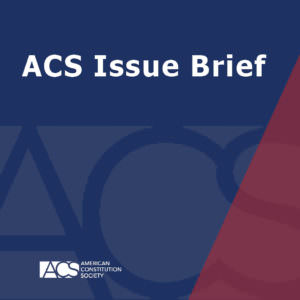Academic Freedom and the Public’s Right to Know: How to Counter the Chilling Effect of FOIA Requests on Scholarship
Deputy Director of the Liberty and National Security Program, Brennan Center for Justice
September 8, 2011
 ACS is pleased to distribute "Academic Freedom and the Public’s Right to Know: How to Counter the Chilling Effect of FOIA Requests on Scholarship," an Issue Brief by Rachel Levinson-Waldman, Senior Counsel of the American Association of University Professors. Recent headline grabbing attempts to force public universities to turn over academic communications on topics such as collective bargaining in Wisconsin and climate change study in Virginia highlight the need for a more uniform and balanced approach to ensure that requests for transparency do not hinder academic freedom, writes Levinson-Waldman.
ACS is pleased to distribute "Academic Freedom and the Public’s Right to Know: How to Counter the Chilling Effect of FOIA Requests on Scholarship," an Issue Brief by Rachel Levinson-Waldman, Senior Counsel of the American Association of University Professors. Recent headline grabbing attempts to force public universities to turn over academic communications on topics such as collective bargaining in Wisconsin and climate change study in Virginia highlight the need for a more uniform and balanced approach to ensure that requests for transparency do not hinder academic freedom, writes Levinson-Waldman.
The author details several solutions to protect the “competing interests” of academic freedom and the public’s compelling interest in transparency of public institutions and their work: “In light of the possibly significant chilling effect upon academic inquiry, particularly in controversial areas, state legislatures and courts would be well-advised to consider incorporating one or more of the approaches suggested [in the ACS Issue Brief], whether an explicit exemption, a balancing inquiry, or a recognition that faculty members may be outside the scope of most FOIA statutes. Such an approach would help ensure that the public interest in unconstrained scholarly inquiry is given appropriate weight relative to the public’s right to know.”
Read the full Issue Brief here: Academic Freedom and the Public’s Right to Know: How to Counter the Chilling Effect of FOIA Requests on Scholarship
